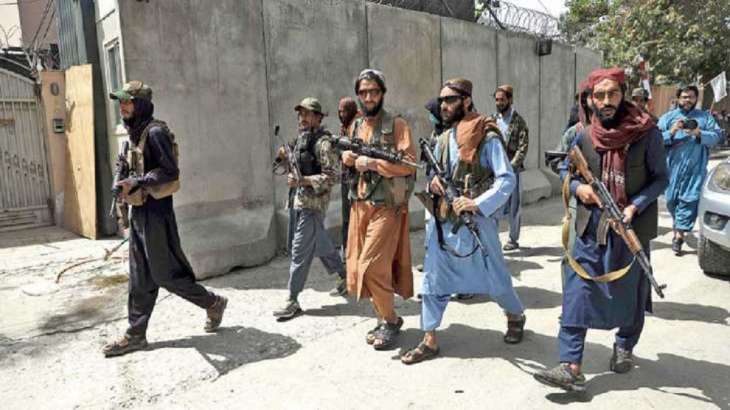
Pakistan: The outlawed Tehreek-e-Taliban Pakistan (TTP) on Monday pulled back an indefinite ceasefire with the government signed in June and ordered its militants to carry out attacks across the country. “As military operations are underway against Mujahideen (terrorists) in various regions, it is imperative for you to carry out attacks wherever you can across the country,” the terrorist group said in a statement.
The statement was issued a day after the England cricket team landed in Pakistan to play the first Test-series in 17 years and a day before the new army chief takes up his post. TTP, also known as Pakistan Taliban, was established in 2007 as an umbrella group of several terrorist organisations. Its main objective is to enforce its strict brand of Islam throughout Pakistan.
The banned group said the decision to end the ceasefire was taken following “a series of sustained attacks by military organizations” in the Bannu and Lakki Marwat regions of Khyber-Pakhtunkhwa province. She also said that she had repeatedly warned people about ceasefire violations but showed patience so that the dialogue process was not “hindered in the least by us”.
“But the army and intelligence agencies did not stop and continued with the attacks. Now our counter-attacks will also begin across the country,” it read.
There was no immediate reaction from the government and intelligence agencies. The TTP declared a ceasefire with the government in June but attacks on security forces never stopped. The group never claimed responsibility and instead blamed splinter groups for those attacks.
Pakistan started talks with the TTP last year with the help of the interim Afghan government, but no progress has been made. The two sides resumed talks in May this year followed by a ceasefire in June, but made no progress as the government refused to revoke the merger of the tribal region into Khyber Pakhtunkhwa province.
The timing of TTP’s statement is significant as last year the New Zealand cricket team canceled its tour of Pakistan after terrorist threats loomed in the country. It is not clear how the English team will react to the TTP announcing the end of the ceasefire.
However, it highlights the challenges facing the new army chief, General Asim Munir, who will take up his new role on Tuesday at a ceremony in Rawalpindi. In October, the Interior Ministry issued a nationwide alert for authorities to maintain “extreme vigilance” amid an increased risk of terrorist attacks by the TTP after peace talks with the group stalled.
The letter urged all the officials of the four provinces to step up security and increase vigilance to avoid any untoward incident. It noted that the TTP accused the Pakistani government of failing to meet its main demand – reversing the merger of the former Federally Administered Tribal Areas (FATA) with Khyber Pakhtunkhwa, as well as continuing to detain TTP members. , while the armistice was still under negotiation. , The ministry had also highlighted the risk of sub-groups of the TTP joining the Islamic State or joining hands with other groups to resume terror attacks.
Foreign Minister Bilawal Bhutto Zardari earlier this month called on the government to rethink its strategy to deal with the militant outfit.
He had said, “The time has come to review the decisions we took or were made to take with regard to internal security and terrorism. about some other things and re-examine our approach”.
The group, which is considered close to al-Qaeda, has been blamed for several deadly attacks across Pakistan, including an attack on an army headquarters in 2009, attacks on military bases and the 2008 Marriott Hotel bombing in Islamabad. In 2012 Nobel laureate Malala Yousafzai was attacked by TTP. He received bullet injuries and was admitted to Military Hospital (CMH) Peshawar and then taken to London for further treatment. The TTP claimed responsibility for the attack, saying Yousafzai was a “western-minded girl”. In 2014, the Pakistani Taliban stormed the Army Public School (APS) in the northwestern city of Peshawar, killing at least 150 people, including 131 students. The attack sent shockwaves around the world, and was widely condemned.
Read this also | Who is Tehreek-e-Taliban Pakistan and why are they giving a big headache to Islamabad. Explained